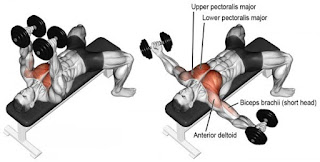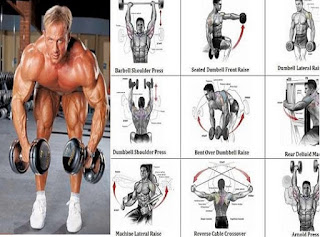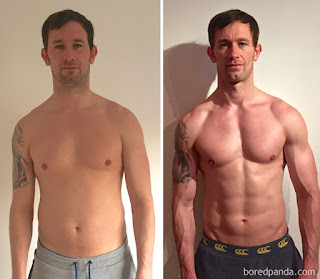3 Extraordinary Methods to Begin Your Chest Training
Exactly the same as when you first saw them.
They pyramid up in weight, starting with eight reps of 185, then six reps of 205, maybe three reps of 215, and then one rep of 225, which their buddies have to deadlift off their chests before it kills them. Every. Single. Week.
Sure, they look like they're making progress. But they're training with heart but not brains, and that's why they plateau for years at a time—failing to increase their pressing strength and chest size. Hopefully, you're not a member of the aforementioned group.
So if you're looking for a way to add size to your chest, it's time to adopt these key strategies.
Incline Dumbbell Press
Lagging upper chest? No problem, the incline dumbbell press will take care of that. While flat benches have their advantages, they can’t train the muscles in all ways possible. The same applies for barbells, by the way!
Alternating between bench angles and ditching the barbell for a pair of dumbbells once in a while will help you hit as many different fibers as possible and achieve better overall hypertrophy. Also, you can adjust the bench angle on every set to emphasize different muscles.
Push and pull
Ask any old-school bodybuilder how to add two inches to your chest, and he'll be happy to lead you through a routine of bench presses, inclines, flyes, and cable crossovers. But rows? "No," he'll tell you, "those are for Back Day."
Well, no offense to your brofessor, but research has shown that a rowing movement is one of the best exercises you can include in a chest workout.
Although rowing exercises don't tax your chest directly, they will promote strength and muscle mass on the rear side of the shoulder joints, thereby keeping your upper back and rear delts in balance with the pecs and front delts. It also prepares your entire shoulder girdle to lift heavier weights on pressing exercises.
For example: Your main bench press workout of the week should begin with one set of seated cable rows for just this purpose, allowing you to put up monstrous numbers on the bench presses that follow. Each time you stimulate your chest muscles, your body will be ready to use the heaviest weights the set calls for.
Dumbbell Fly
Typically, isolation exercises such as dumbbell flies are performed at the end of the workout, after you’ve fatigued your muscles with the major compound moves. But there’s an exception to this rule and it’s called pre-exhaust training, or pre-tiring a certain muscle using an isolation exercise first and then finishing with multi-joint movements.
The point is to ensure that other muscles don’t fatigue before the target muscle and limit the amount of work you can perform, and some studies claim this approach offers greater muscle building benefits than the standard exercise order.




Commentaires
Enregistrer un commentaire